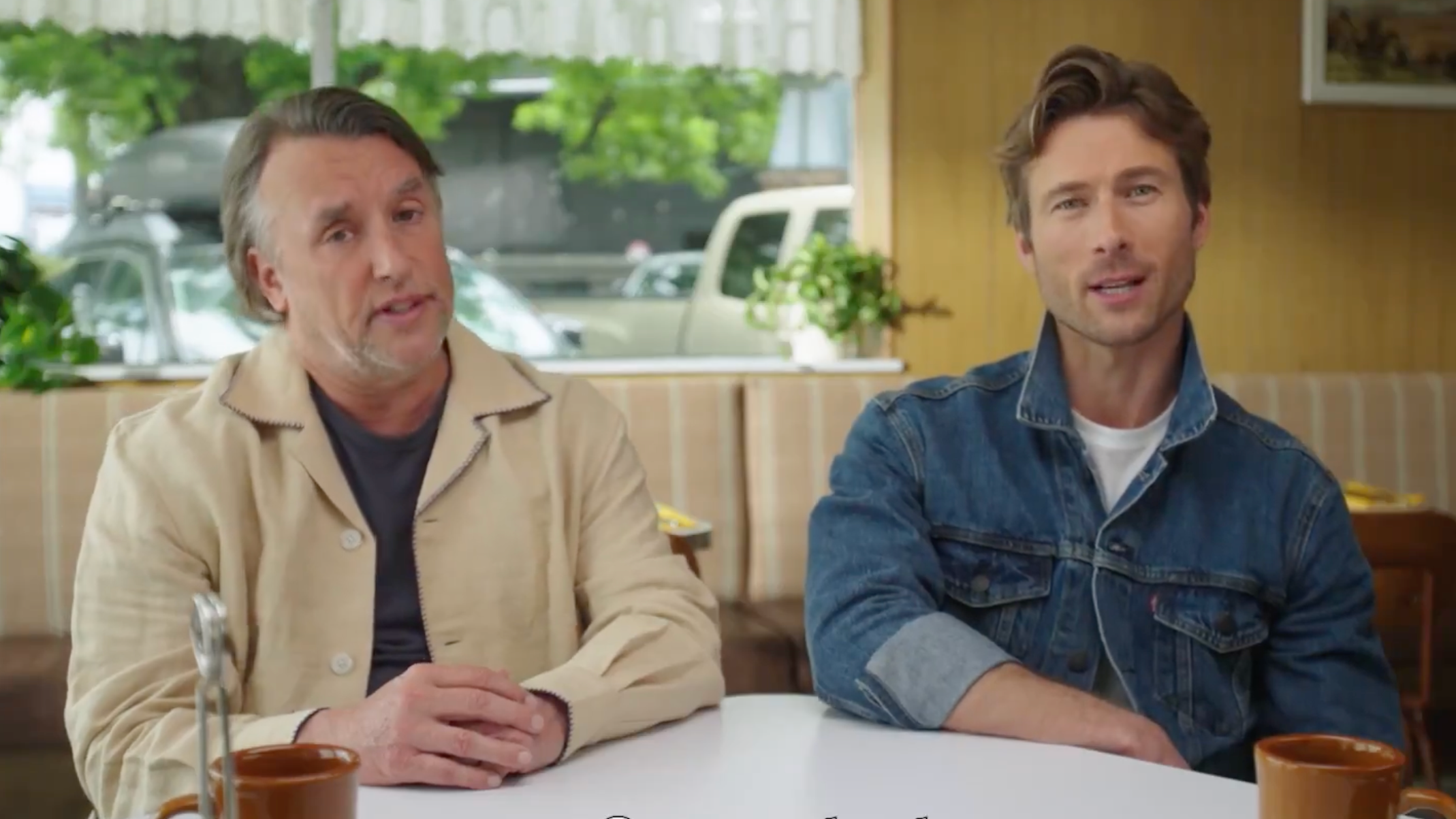Richard Linklater and Glen Powell Screenshot: Netflix/Twitter
On June 7, Netflix will begin streaming Hit Man, the critically acclaimed dark romantic comedy about a police mole posing as a murderer for hire co-written by Richard Linklater and Glen Powell. This is a movie that has everything going for it: an established, respected director in Linklater, a likable (and, more recently, bankable) lead actor in Powell, a central couple with a ton of chemistry thanks to co-lead Adria Arjona, and glowing reviews that have continued to pile up since the film first premiered at the Venice International Film Festival. In years gone by, this would be an undeniable mid-level hit with a long and successful theatrical run. Instead, the movie was relegated to streaming, and Linklater has spent much of the time dedicated to promoting the movie grappling with the fact that none of the traditional studios wanted to make or distribute the movie.
This disconnect began in the production stage, as Linklater recently told the BBC that “the industry really didn’t want to make the film initially.” When pitching the film, he sensed that studios wanted the movie to be “just one thing.” He recalled “frustrating” conversations with the studios, including the note that “they wanted Ron to be a real hitman, something they’d seen before.” Without studio support, they ended up making the film “very independently,” Linklater told the BBC, adding in an interview with Texas Monthly that making the movie cost “A little over ten, eleven million, something like that.”
Netflix ultimately acquired the film for $20 million out of the Toronto Film Festival. “The studios could have had it, but despite the overwhelming audience and critical response, they just acted like they weren’t totally convinced,” Linklater shared with Texas Monthly. “It’s a weird time in our industry—not as good as it once was, put it like that. Netflix was the company that stepped up with the right attitude, like, ‘Hey, we love this film, and we want to make sure everybody sees it.’ They made it an easy choice for us.” To Decider, the Oscar-nominated filmmaker admitted he didn’t know why none of the traditional studios were interested: “Everybody’s scared,” he said. The film getting rejected even after being so well received at Venice is “the more telling thing about our industry, probably,” he added. “As a finished film, showing it to very appreciative audiences, and a nice critical response—they still didn’t want it! That’s a studio issue that I can’t speak to.”
He does have theories as to why the studios were so turned off, one of them being that crucial issue that the film wasn’t “just one thing.” (Why were the studios so confused about Ron being a fake hit man?) Another theory is that Powell’s power as a leading man hadn’t been established yet, particularly when they were pitching: ”I think if it was today, with Glen having been in a few more movies that did well, maybe it’d be different,” Linklater told Decider. In his BBC interview, Linklater speculated that the depiction of adult sexuality might have turned studios away. The entertainment industry used to invest in adult movies, not just in the sense of sex but also in the everyday complications of adult life. “But somewhere along the way Hollywood inverted that,” Linklater observed. “It’s like they said, ‘we’re going to make films where you can stay 13 forever, you stay that little kid with little kid concerns’, so I guess it drifted away as its complexities weren’t the subject matter of mainstream cinema as it had been before.”
Though Linklater has given Netflix plenty of credit for seeing the potential of Hit Man, there’s no doubt that the brain trust behind the movie must be disappointed that it won’t be seen widely in theaters. Powell—who will take the cinemas by storm later this summer with Twisters—noted in one of his many profiles that they took a gamble bringing his rom-com Anyone But You to theaters, figuring that “If we make this on a streamer, it won’t have any cultural impact.” That’s a grim fate to consider for an old-school crowd-pleaser like Hit Man, and it’s clear Linklater would’ve liked a bigger theatrical window for the movie. “ I think every single filmmaker whose film goes to Netflix has that conversation with them” about putting the movie in more theaters for longer, Linklater said to Texas Monthly. “You know, I have hopes that people will see Hit Man in theaters. But I also know that by the time a lot of them hear about the movie, it will be out of theaters.”
This is the plight of an original, small-scale comedy in a Hollywood that’s foaming at the mouth for “established IP.” “You don’t get fired for doing a sequel or an origin story, something that already exists,” Linklater said to the BBC. “You don’t get in trouble for what’s obvious and commercial. What changed is that films got greenlit by the marketing department and then it’s become really safe choices.”

